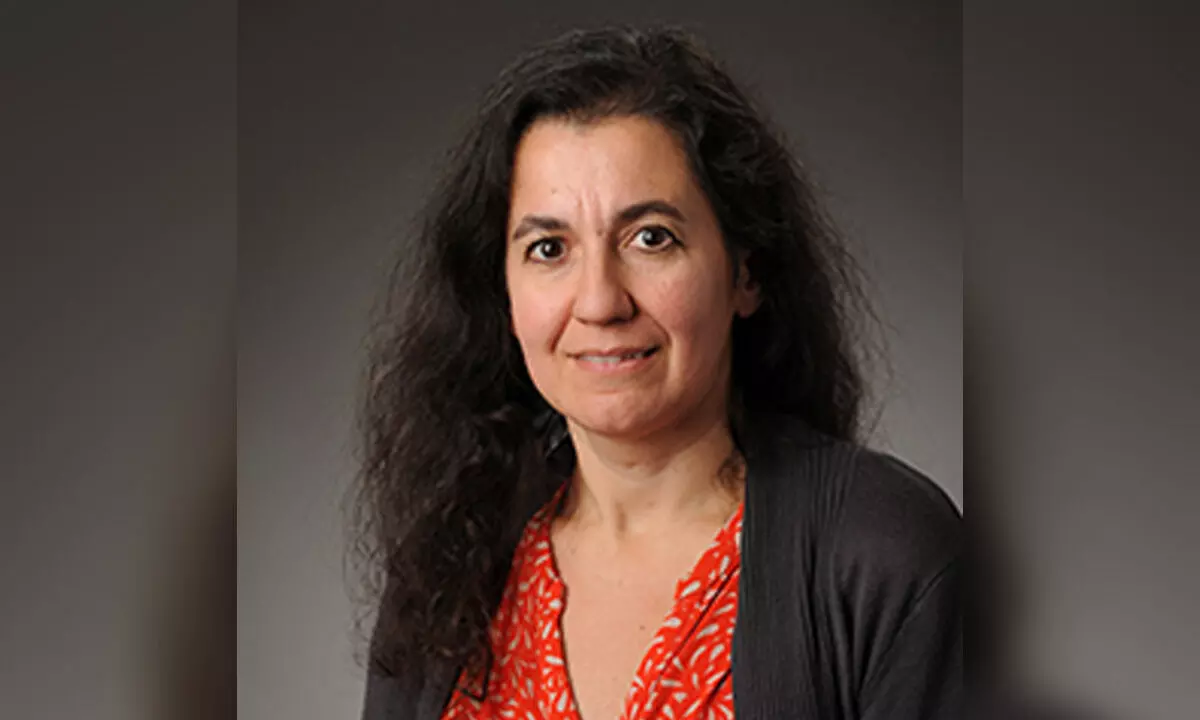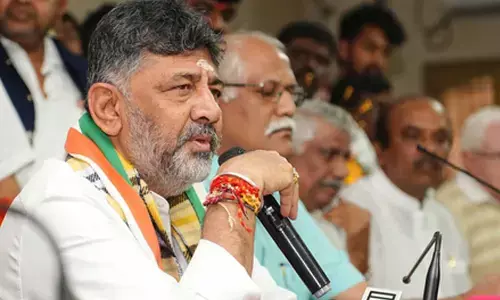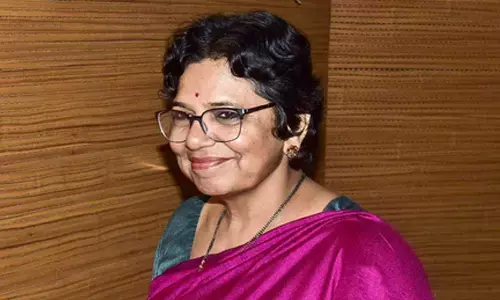Inclusive policies essential for reducing poverty gap for people with disabilities: Dr Sophie Mitra

Accessibility must cater to all, from wheelchair users to those with visual impairments, says Dr Mitra, Founding Director of Research Consortium on Disability
Dr Sophie Mitra, a renowned professor of economics and Founding Director of Research Consortium on Disability, has dedicated her career to exploring the intersections of disability, poverty, and social policy. In a conversation with The Hans India, Dr Mitra emphasises the importance of inclusive economic policies, particularly in low and middle-income countries, where infrastructure and social attitudes lag behind. “Accessibility should cater to all, whether individuals use wheelchairs, stretchers, or have visual or auditory impairments,” she notes. She also discusses how the pandemic disrupted disability data collection, complicating efforts for recovery. With a collaborative approach, her work aims to fill these gaps and promote inclusive policymaking worldwide.
What inspired you to focus on your research on disability, and what have been the biggest challenges and rewards of this focus?
My work is driven by social justice issues, particularly poverty, hunger, and food insecurity. Disadvantaged groups, often neglected due to a lack of data or misrepresentation, became my research focus. When I began in 2002, there was very little global data on people with disabilities. This changed as we realized that disabilities affect a significant portion of the population—one in six adults and one in ten children globally. Disabilities are common, and many are invisible. My aim has been to contribute to the research on this crucial issue.
Your research explores the intersection of poverty and disability. How do you think economic policies should evolve to reduce the poverty gap experienced by people with disabilities, especially in low- and middle-income countries?
There is no single solution, but economic exclusion is a major issue that needs attention. Creating inclusive environments, particularly in terms of infrastructure and transportation, is key. Accessibility should cater to all, whether individuals use wheelchairs, stretchers, or have visual or auditory impairments. Social attitudes also need to evolve to avoid underestimating the capacities of people with disabilities. Educational access, job creation, and making sure those jobs are accessible are essential. For individuals unable to work at certain times due to medical needs, social protection through cash transfers and healthcare is equally important.
How does the Disability Data Initiative (DDI) help identify gaps in disability data collection, and what steps can national statistical offices, especially in countries like India, take to improve their data practices in line with international standards?
Data is critical for understanding the status of different groups within a country. Population censuses and household surveys are key tools for gathering this information, and it’s essential to include questions that identify people with disabilities. This helps policymakers track their employment, education, and overall well-being. For countries like India, it’s important to use internationally measurement tools, i.e. disability questions, to produce disability statistics and report effectively under the Convention on the Rights of Persons with Disabilities and the Sustainable Development Goals.
The Covid-19 pandemic has disproportionately affected vulnerable populations. How has it impacted the collection and reliability of disability data, and what implications does this have for post-pandemic recovery efforts in the Global South?
The pandemic severely impacted data collection, particularly for vulnerable groups. Surveys conducted during Covid-19 were often done via phone, limiting the depth of data collected, especially for those with disabilities. Many surveys only asked households one broad question about disability, which is insufficient to identify persons with disabilities and capture their situation. In some cases, no questions on disability were included at all. This creates gaps in understanding the impact of the pandemic on people with disabilities and complicates post-pandemic recovery efforts, especially in the Global South.
Your research underscores the importance of substantial data. How can local governments and policymakers in India leverage DDI principles to implement more effective and inclusive policies for persons with disabilities at the regional and community levels?
India’s 2011 census, despite using disability questions that are not internationally comparable, can still provide useful insights at the community level. Local data can help identify region-specific challenges, such as access to employment in one district or social protection in another. Policymakers must analyze local data to tailor programs effectively. Using regional data to inform policies is vital for driving positive change.
Collaboration appears to be a key element of your work. Could you discuss the role of international cooperation in advancing disability data initiatives, and how can Indian institutions engage more effectively in these global efforts to promote inclusion?
The Disability Data Initiative is a global collaboration, bringing together researchers from diverse disciplines and regions, including India, USA, Switzerland, and South Africa, and collaborating with international organisations of persons with disabilities. This diversity is essential, as it allows us to tackle local and international challenges. Some countries have robust disability policies, while others are still developing theirs. By working together, we can address these gaps and advance disability data efforts worldwide.
In your experience, what are the most significant systemic barriers that people with disabilities face in their economic lives?
One major barrier is the negative attitudes toward the ability of people with disabilities to work. In India, for example, research I conducted in 2005 revealed that families often underestimated the work potential of their disabled members. While this attitude is changing, it remains a barrier globally. With greater support from families and communities, people with disabilities can pursue education and employment, but these attitudes must shift to create real opportunities.
Looking forward, what areas of research do you believe are crucial for further understanding and improving the economic lives of people with disabilities?
We need to focus on documenting the barriers that people with disabilities face, in addition to the inequalities they experience. Advances in data science offer new tools to map the location of healthcare and other services.
For instance, identifying where healthcare facilities are located and their accessibility can highlight areas where people with disabilities face greater challenges. Using data to drive policy at the community level is critical, especially as we face global issues like climate change, which disproportionately affect marginalized groups, including people with disabilities.

















